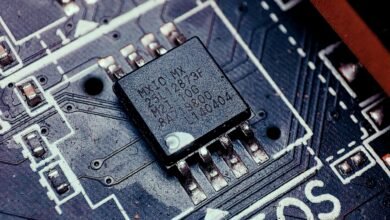
The rapid evolution of technology has redefined the logistics landscape, particularly in the UK. One of the most transformative developments in recent years is the adoption of the Internet of Things (IoT). For UK companies, leveraging IoT strategies for optimizing logistics is no longer just an innovation; it’s a competitive necessity. From improving supply chain visibility to enabling predictive maintenance, IoT is revolutionizing how goods are moved, tracked, and delivered.
This article explores various IoT strategies for optimizing logistics in UK businesses, illustrating how these technologies enhance operational efficiency, reduce costs, and improve customer satisfaction.
Understanding IoT in the Logistics Sector
IoT refers to a network of interconnected devices that collect, transmit, and analyze data. In the logistics industry, this includes everything from GPS trackers and RFID tags to smart sensors and connected vehicles. These devices provide real-time insights into every stage of the supply chain, allowing companies to make data-driven decisions.
1. Real-Time Tracking and Fleet Management
One of the most powerful IoT strategies for optimizing logistics is real-time tracking. GPS-enabled sensors on vehicles and cargo provide instant updates on location, movement, and condition. This capability allows UK logistics companies to:
- Monitor fleet routes and make adjustments for traffic or weather
- Ensure timely deliveries
- Reduce instances of lost or delayed shipments
- Enhance driver safety and compliance
Fleet management systems integrated with IoT can also monitor vehicle health, fuel consumption, and driver behavior. This data helps in reducing operational costs and improving efficiency.
2. Predictive Maintenance and Asset Management
IoT sensors can detect wear and tear in vehicles and machinery before breakdowns occur. Predictive maintenance uses this data to schedule timely repairs, preventing costly downtime. For UK logistics firms, especially those managing large fleets or warehouses, predictive maintenance is crucial.
By analyzing data from connected equipment, companies can:
- Extend the lifespan of assets
- Schedule maintenance during non-peak hours
- Avoid emergency repairs and associated delays
This proactive approach not only enhances operational efficiency but also reduces long-term maintenance costs.
3. Warehouse Automation and Inventory Management
Smart warehouses are becoming the norm in the UK logistics sector. IoT-enabled devices such as RFID tags, automated guided vehicles (AGVs), and smart shelves streamline inventory management and warehouse operations.
IoT strategies for optimizing logistics in warehouses include
- Real-time inventory tracking
- Automated reordering systems
- Efficient space utilisation
- Reduced human error in stock management
With better inventory visibility, UK businesses can reduce carrying costs, avoid stockouts, and enhance customer satisfaction.
4. Enhanced Supply Chain Visibility
Supply chain transparency is a growing concern among UK companies and their customers. IoT devices provide end-to-end visibility by tracking products from origin to delivery. This visibility allows stakeholders to:
- Monitor the status of shipments in real-time
- Respond quickly to disruptions or delays
- Ensure compliance with regulations and standards
Enhanced visibility also helps in identifying inefficiencies and implementing corrective measures promptly.
5. Cold Chain Monitoring
For UK companies dealing with perishable goods such as food, pharmaceuticals, or flowers, maintaining the right temperature throughout the supply chain is critical. IoT sensors can continuously monitor and record environmental conditions such as temperature and humidity.
IoT strategies for optimizing logistics in the cold chain include
- Real-time temperature alerts
- Automated compliance reporting
- Data logging for audit trails
- Immediate corrective actions in case of deviations
These strategies ensure product integrity, reduce waste, and comply with stringent industry regulations.
6. Improved Last-Mile Delivery
Last-mile delivery is often the most expensive and complex part of logistics. IoT solutions like route optimization, customer communication tools, and smart lockers help UK companies overcome these challenges.
Key benefits of IoT in last-mile delivery:
- Efficient delivery route planning
- Real-time delivery updates to customers
- Contactless delivery solutions
- Dynamic delivery scheduling based on traffic and customer availability
These enhancements lead to faster, more reliable deliveries and higher customer satisfaction.
7. Data-Driven Decision Making
The abundance of data collected by IoT devices allows UK logistics firms to make smarter decisions. By leveraging analytics and AI, companies can:
- Forecast demand more accurately
- Identify patterns in delivery performance
- Optimise resource allocation
- Improve overall supply chain efficiency
Business intelligence tools that process IoT data enable continuous improvement and strategic planning.
8. Sustainability and Green Logistics
Sustainability is becoming a top priority for UK businesses. IoT helps in monitoring and reducing the environmental impact of logistics operations. With IoT strategies, companies can:
- Track carbon emissions from transport
- Monitor energy usage in warehouses
- Optimise packaging and reduce waste
By adopting green logistics practices enabled by IoT, businesses not only comply with environmental regulations but also build a positive brand image.
9. Integration with Emerging Technologies
IoT does not work in isolation. When integrated with technologies like blockchain, artificial intelligence (AI), and machine learning (ML), it amplifies the impact on logistics.
For example:
- Blockchain ensures secure and transparent transaction records.
- AI enhances predictive capabilities for demand and maintenance.
- ML improves anomaly detection and decision-making accuracy.
UK logistics companies adopting integrated technology ecosystems gain a significant competitive edge.
10. Regulatory Compliance and Security
In the UK, logistics firms must adhere to various regulatory requirements, especially regarding data protection (GDPR) and product safety. IoT systems can assist in:
- Automating compliance documentation
- Enhancing traceability and product recall readiness
- Securing data transmission through encryption and secure networks
By embedding compliance into IoT strategies, companies can avoid penalties and protect customer trust.
Conclusion
The implementation of IoT strategies for optimizing logistics is reshaping the UK logistics sector. From real-time tracking and predictive maintenance to smart warehouses and sustainable practices, IoT offers a comprehensive toolkit for operational excellence.
UK companies that embrace these strategies will not only see immediate improvements in efficiency and cost-effectiveness but also position themselves for long-term growth and innovation. As logistics continues to evolve, the role of IoT will only become more pivotal.
In conclusion, investing in IoT strategies for optimizing logistics is not just about staying competitive—it’s about leading the future of smart, responsive, and sustainable logistics in the UK.







